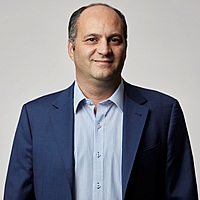Income to drive returns
The recent, serious problems in the global banking sector rightly made headlines, but is this the start of bigger challenges for not just financials but the broader economy? It’s hard to argue against a slowing global economy decelerating further as access to credit for business and individuals is likely to become more difficult. Two data points signal this is already underway:
The most recent survey of senior loan officers by the US Federal Reserve in Q4 2022 showed a net 40 per cent of respondents were tightening standards for commercial and industrial loans and increasing the rate charged on those loans.
A quarterly survey by the Federal Reserve Banks of Richmond and Atlanta, showed that US CFOs have trimmed plans for capital expenditures, with the share of financial executives citing unfavourable financing rising to 24% in the first quarter from 14% in the third quarter of 2022. The survey of more than 250 CFOs closed the day Silicon Valley Bank collapsed.
The woes seen in the US and European banking sector over the last weeks will only make these standards tighten further and therefore costs move higher for borrowers, adding to the already considerable economic headwinds.
Aside from lending standards, about the most important leading economic indicator is the US Institute of Supply Chain Management’s (ISM) manufacturing survey which leads the outlook for corporate profitability both in terms of level and direction.
A manufacturing ISM above 50 signals the economy is expanding, suggesting an increasing level of future corporate profitability. Below 50 suggests a decreasing level.
The ISM is currently below 50 and has been trending downward since June 2022. With interest rate increases yet to work their way through the broader system, the balance of probabilities therefore is heavily weighted towards falling indices and negative returns.
So where should investors look in this environment?
The bull market that ran throughout the last decade trained global equity investors to focus on capital growth more than dividend income. Yet dividend income always plays a positive part in total return, the same cannot be said of capital growth as shown for the S&P500 below.

We value dividend income as much as the next investor, but it is not a cure all and has disadvantages. The impact of the pandemic, for example, was a reminder that dividends can be unreliable as they fluctuate with earnings. Sometimes for the best of reasons, management and even regulators can cut payouts at times of economic stress. It is notable that the turmoil in US regional and European banks has resulted in a decline in expectations of future dividend payments in 2024 between 6 and 10 percent as witnessed in the dividend swap market.
A dividend-only strategy can also lead to traps, elevating risks as investors seek income in a shrinking opportunity set and concentrating holdings in areas as banks and resources in Australia and the UK, thereby reducing diversification. And it can also affect your portfolio's quality and ESG credentials.
One solution to the dividend income challenge lies in the process of buying stocks. Selling put options to enter stock positions generates a premium for the potential buyer, regardless of whether the stock is ultimately bought or not.
It creates:
a downside buffer to first loss,
more consistent income,
less portfolio volatility, and
diversifies the sources of return.
This way of buying stocks requires certain essentials in order not only to manage but to reduce risk. Firstly, the options should always be cash covered, writing so-called naked options is a dangerous game. Secondly, always using exchange traded rather than over the counter options removes counter party risk. Finally, the options must be on stocks that are great collateral and good, value-based opportunities.
This unusual but proven approach means that in periods such as now, investors have somewhere else to go for income. Further, as option premium increases with volatility, an uncertain environment in most cases increases income from this source.
5 topics

